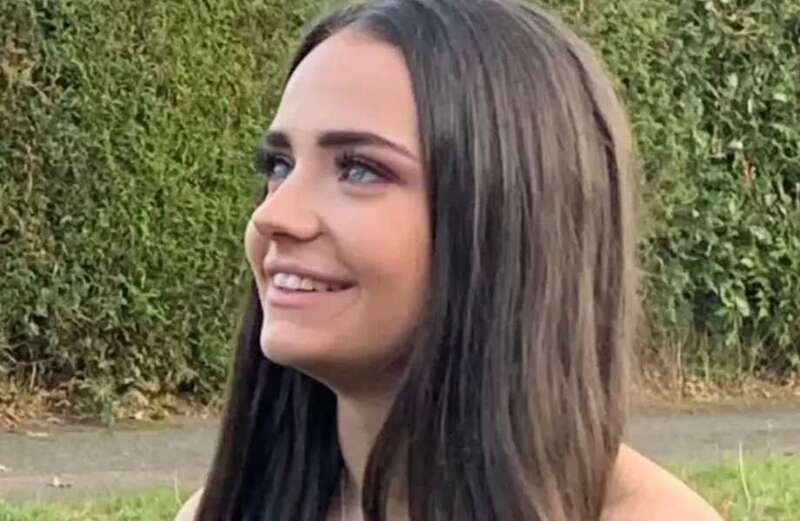FOR months teenager Abi Marie Dean dismissed her blurry vision.
The aspiring hairdresser didn’t tell her dad, Martin, and delayed visiting an optician due to the Covid-19 lockdown restrictions.



Two years later, aged 18, Abi died after the rare form of melanoma that was causing her vision problems spread.
Now, heartbroken dad Martin is pleading with other parents to ensure their kids’ eyes are checked regularly — telling Sun Health: “If she had told us three months earlier, maybe the treatment would have worked.”
Abi’s death in September last year came as a shock to her small town of Oxted, Surrey.
 From tongue scraping to saying no, here are 12 health trends to try in 2023
From tongue scraping to saying no, here are 12 health trends to try in 2023
Locals have since raised more than £20,000 for the charity Young Lives VS Cancer, which supported the youngster, and the Royal Marsden where Abi spent her last weeks of life, including The Barn Theatre which raised £10,000.
Martin, 40, a plasterer, says: “She had melanoma of the eye. I’d never even heard of it before.
“Most of the time in life you say, ‘I learned from that, let’s not do that again’. Sometimes in life, you don’t get the chance to put it right. That’s the hardest thing as a dad. From a baby to a teenager, I protected Abi, she was my absolute life, all my kids are.
“For it to be taken out of my control, not to be able to do anything and watch it unfold, was very difficult.
“Probably nine times out of ten, you just need glasses. But never take that risk, because you never know what’s around the corner. The quicker you find any cancer, the more chance you have of removing it.”
Vision changes can concern far more than eyesight, including a brain tumour, stroke or diabetes.
A study in 2023 found that a third of parents of six to 15-year-olds prioritised appointments for the doctors and dentists over the opticians. But 97 per cent wish they had spotted tell-tale signs of eye issues earlier.
It’s not uncommon for kids to mask sight problems, too.
Martin, who has been with partner Kirsty, 40, for 12 years, remembers the day Abi told him about her blurry vision “like it was yesterday”.
He says: “She said she could hardly see anything and I was a bit cross with her. I said, ‘Why haven’t you said anything? How much can you see?’ And she said, ‘Not a lot’.”
 How to de-clutter if you have a beauty stash to last you a lifetime
How to de-clutter if you have a beauty stash to last you a lifetime
Abi — sister to Cameron, 22, Skye, 18, and ten-year-old Jay — went to the opticians in the late summer of 2021, four months after her vision began changing.
It led to the diagnosis of choroidal melanoma, a rare kind in the melanoma family of cancers, affecting the back of the eye.
Abi otherwise '100 per cent healthy'
Martin claims: “Doctors said there was a 96 per cent chance the radiotherapy would work. Back then, we jumped at that.”
Abi, otherwise “100 per cent healthy”, had five days of radiotherapy.
The disease is uncommon in the young but statistics suggest around 50 per cent of patients die from the cancer spreading.
Reassured by doctors, her loved ones say there appeared to be no urgency around Abi’s care.
However, she began to complain of eye pain and vision loss. Martin recalls: “It was Abi that said, ‘I want my eye out’.
“It was then that they realised how bad the cancer had become, despite saying it was nothing to worry about.”
After Abi’s eye was removed and replaced with a glass eye in June 2022, tests revealed that the cancer was more serious than previously thought and had spread to the then 17-year-old’s lungs.
Abi, studying hairdressing at college, became part of a clinical trial for Tebentafusp, a drug used to treat melanoma of the skin.
The results showed a huge reduction in cancer and were seen as nothing short of a miracle, as Abi turned 18.
Sadly, scans in January 2023 revealed new tumours and doctors warned the family they were out of options.
'It was a slow progression'
Three months later it was decided that Abi would receive palliative care at her home.
It was mind-boggling for Abi who felt fine and was just starting to enjoy life as an 18-year-old, going nightclubbing and spending time with her friends and boyfriend, Thomas Muscio. Martin says: “If you didn’t know Abi, you wouldn’t have known she was riddled with cancer. It was a slow progression.”
That summer, Abi began getting pain in her legs. Her condition deteriorated over three months as she stopped walking.
Martin says: “With what I know now, I would tell others, bold and strong, take the eye out from the start. Lose your eyes and not your life. That’s one thing we regret. We just left our trust in the doctors.”
In the last six weeks of her life, Abi was at the Royal Marsden in London’s Kensington. When she died, the cancer had spread to her legs, breasts, spine, face and multiple other areas.
Martin says: “It still makes me angry. They never made us feel that this could take her life.
“It was always, ‘It’s going to be OK’. Definitely at the later stages, Abi knew she wouldn’t survive. Deep down I knew there wasn’t any more treatment, and when I spoke to the doctors they told me Abi knew too.”
Martin adds: “Abi was one-in-a-million. She had a big heart and was very family-oriented.
“There’s not many young girls who have got their head on their shoulders like she did.
“My son gives me the strength to carry on. The one thing Abi said to me was, ‘Make sure you give Jay the life you gave me’.”



































